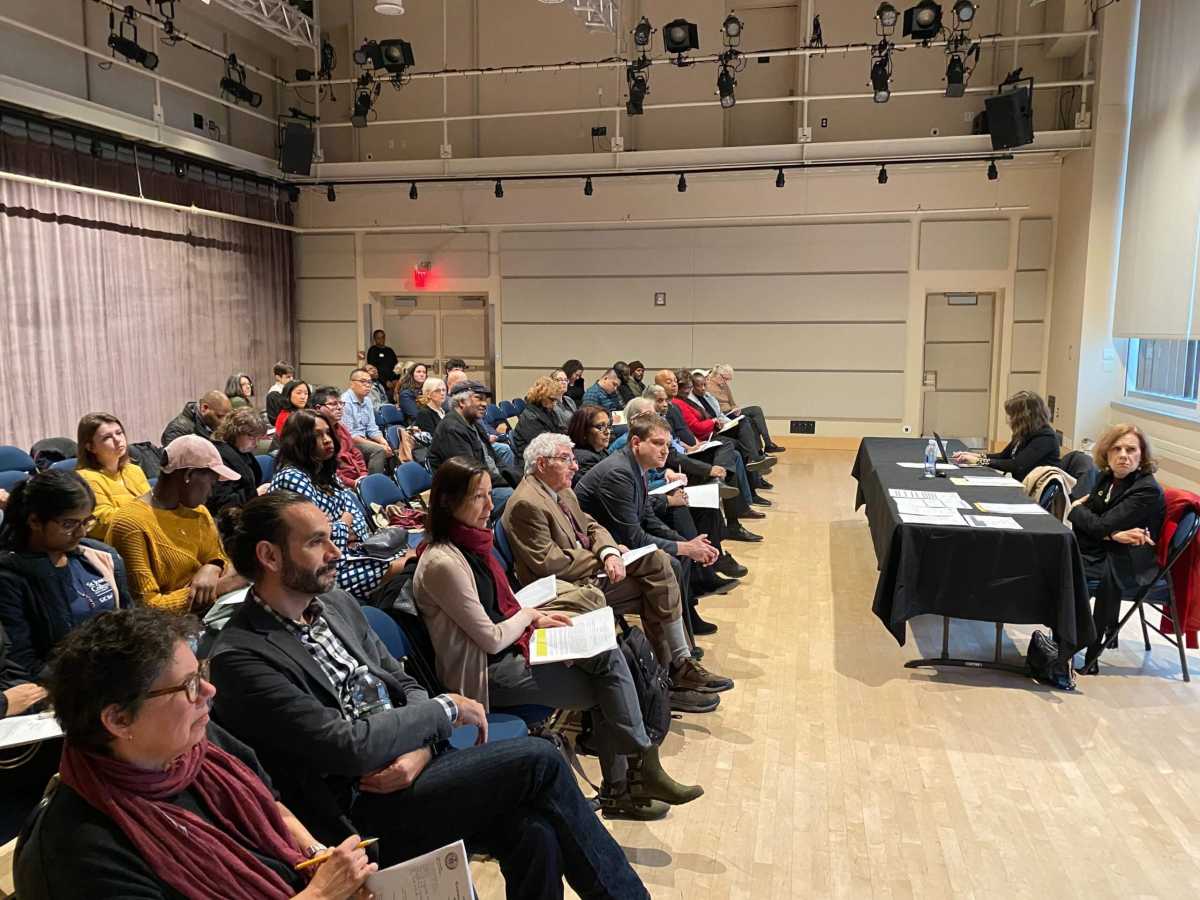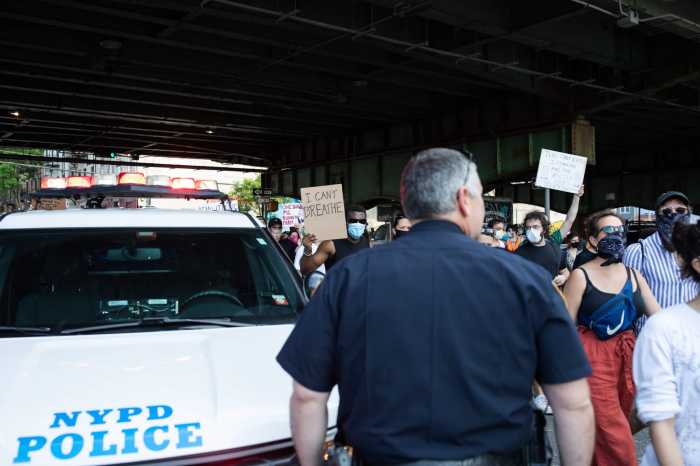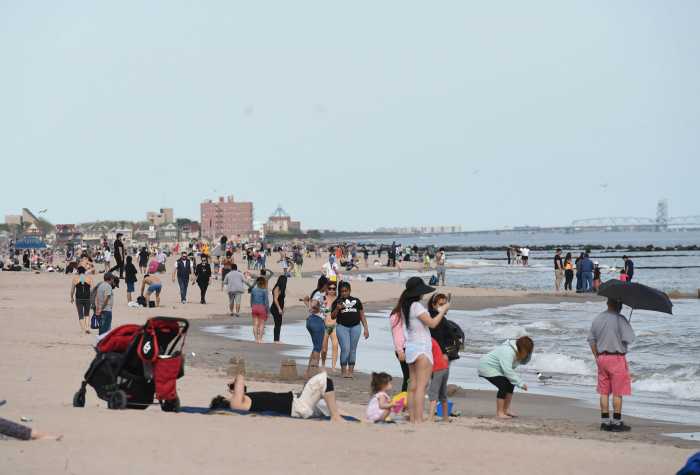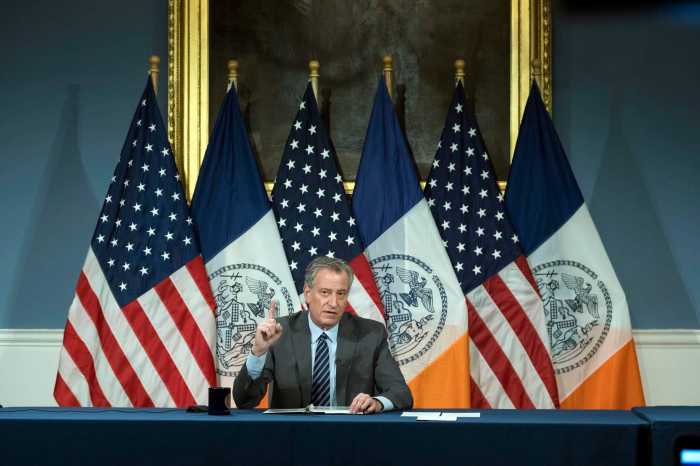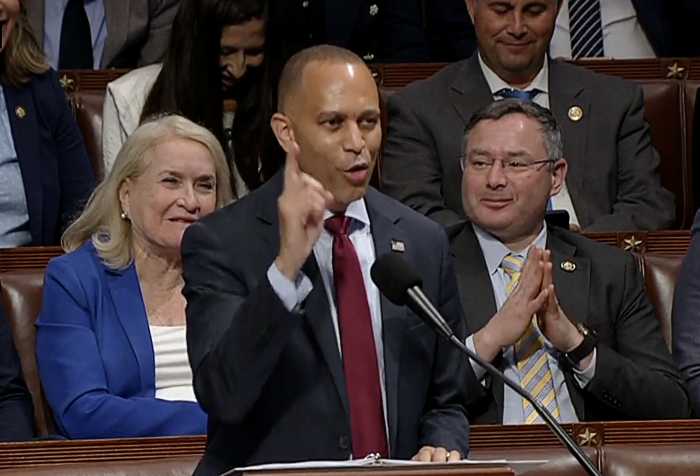Amid this year’s massive budget shortfalls, Mayor Bill de Blasio’s office is asking the city’s community boards to voluntarily lay off some of their paid staff to help lighten the load, but several local civic panels have resisted City Hall’s calls to sacrifice their workforce.
The head of one southern Brooklyn board said the cuts would make it harder for the boards to advocate for everyday constituent issues like garbage pickup or tree pruning.
“Absolutely not, we have a very small staff to begin with [and] for us to voluntarily get rid of another staff member is out of the question,” said Theresa Scavo, chairperson of Community Board 15 in Sheepshead Bay. “You need someone who is going to constantly call back these people [at city agencies] and tell them [about local concerns].”
Scavo and several other Brooklyn boards have rejected the demand by the Mayor’s Office of Management and Budget, which asked civic gurus in a teleconference on Aug. 19 to consider cutting back their paid staff, which is usually around three people per board.
Hizzoner has threatened laying off 22,000 municipal employees across all city agencies by Oct. 1 to balance a $9 billion city budget deficit caused by the COVID-19 pandemic.
Departments expected some of their employees to get their 30-day notices Monday, but de Blasio delayed handing out pink slips after union leaders urged him to take time to find other means of saving money, the Wall Street Journal reported.
A spokeswoman for the mayor declined to give a specific date for the layoffs, saying it was a “day by day” timeline.
“On the new date, the mayor spoke to this today. It’s a day by day thing,” said Laura Feyer in an email.
Feyer refused to say whether any of the boards have already volunteered redundancies, but noted that all agencies from the mayor’s office on down have been asked to cut their workforce and that the best way to avoid that was for the state to allow the city to borrow money.
“The City has lost billions in revenue due to the impact of COVID-19. All agencies and organizations that have paid staff, including community boards and offices of elected officials, have been asked to participate in labor savings,” Feyer said. “Long term borrowing authority from Albany is the best solution to avoid layoffs.”
The city’s 59 community boards consist almost entirely of 50 unpaid members each, but they also have a handful of salaried city employees, such as a district manager and a couple of supporting staff.
These workers run the board district offices, field complaints from residents, and organize monthly meetings for board members and the public to give input about neighborhood issues ranging from state liquor licenses to proposed mega-developments.
In the coronavirus era, the boards have met online via video conferencing platform Cisco WebEx, and the head of Downtown Brooklyn’s Community Board 2 said that one of their hires, who started work just before the pandemic broke out, used her background in a digital work environment to help CB2 more easily transition to virtual meetings.
“One of my new hires comes out of the digital world and working remotely — she has always worked remotely in recent jobs — and she has just stepped in and stepped up,” said Rob Perris.
Community Board 2 voted unanimously at a recent executive committee meeting to not lay off any of its paid staff, which consists of three full-time employees and one part-timer.
Perris echoed Scavo’s concerns that a reduced staff would make it harder to hold bureaucrats’s feet to the fire to resolve issues in the districts.
“You need to go back and back and back to a mayoral agency in order to get a resolution,” Perris said. “[With less staff] we’d more readily accept defeat.”
One Downtown Brooklyn board member at the Aug. 24 meeting slammed de Blasio, saying the panels were one of the few formal community forums available and that they are already starved of funds.
“Community boards are so underfunded to begin with, that it’s a disgrace to ask us who represent the community — about the only place where the community has any kind of say — it’s disgraceful to ask us to cut,” said Irene Janner.


